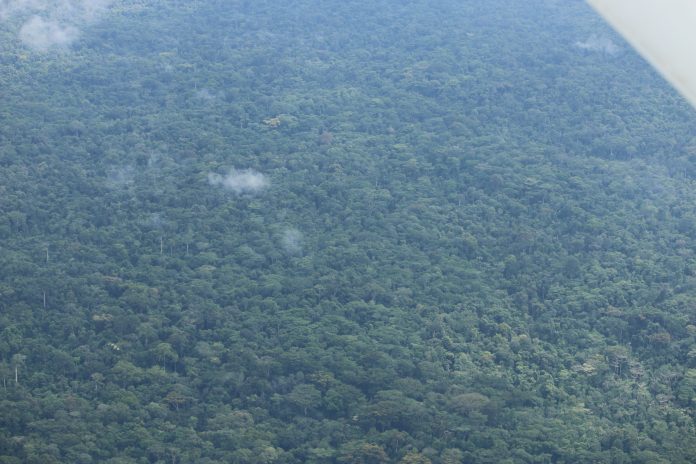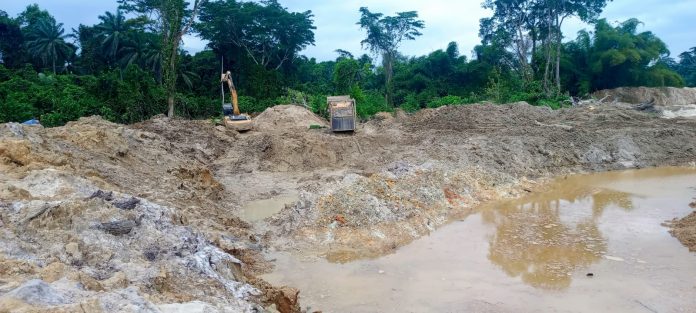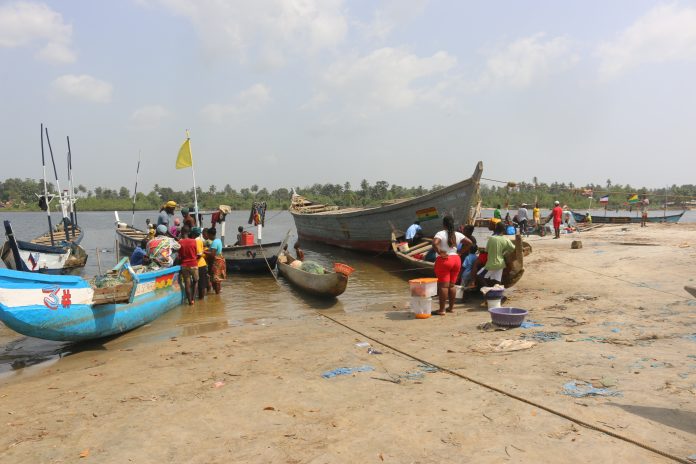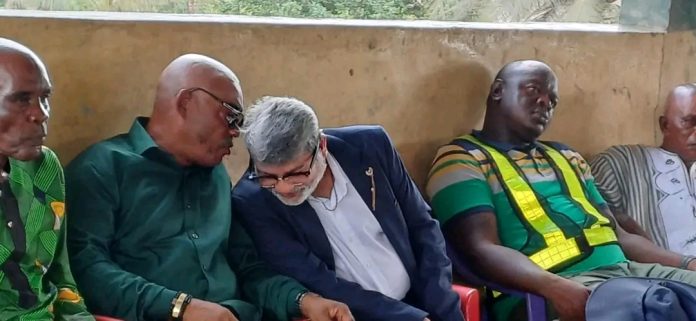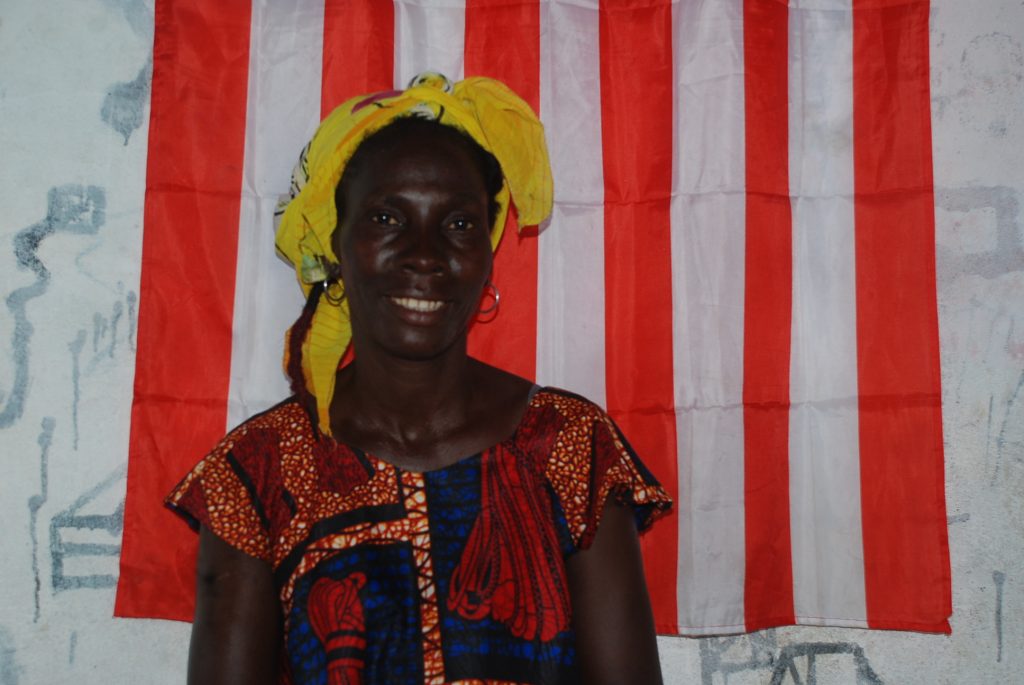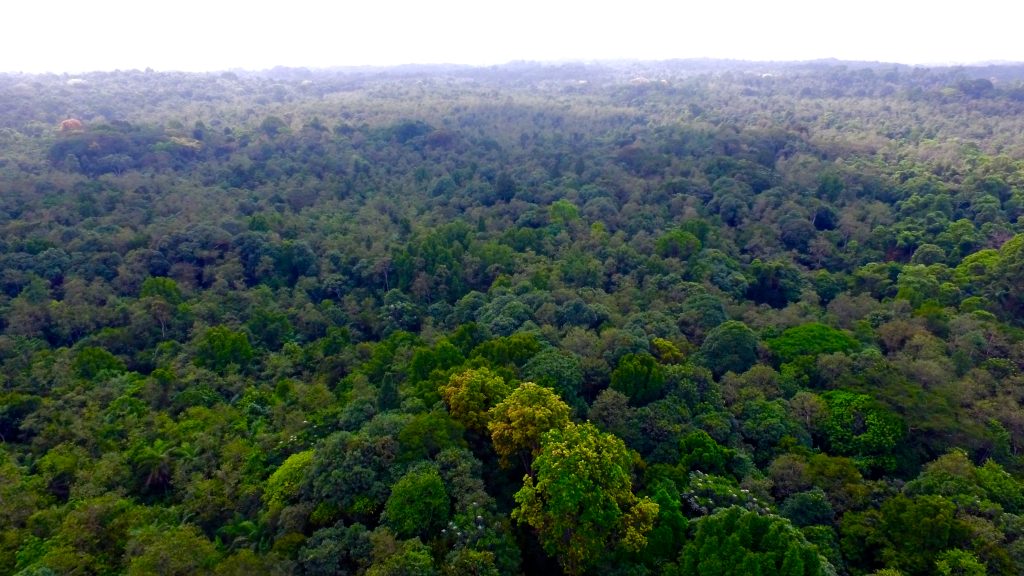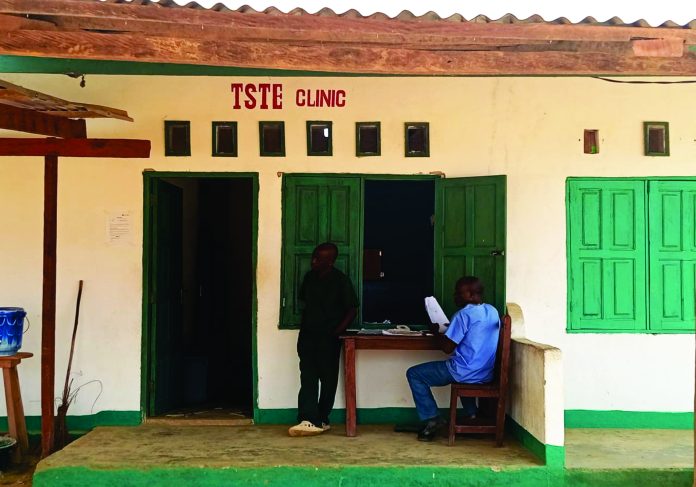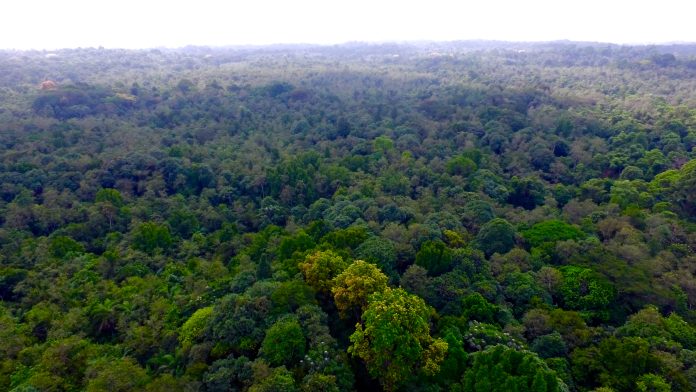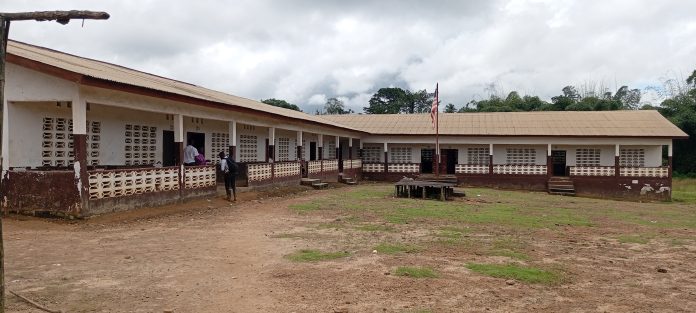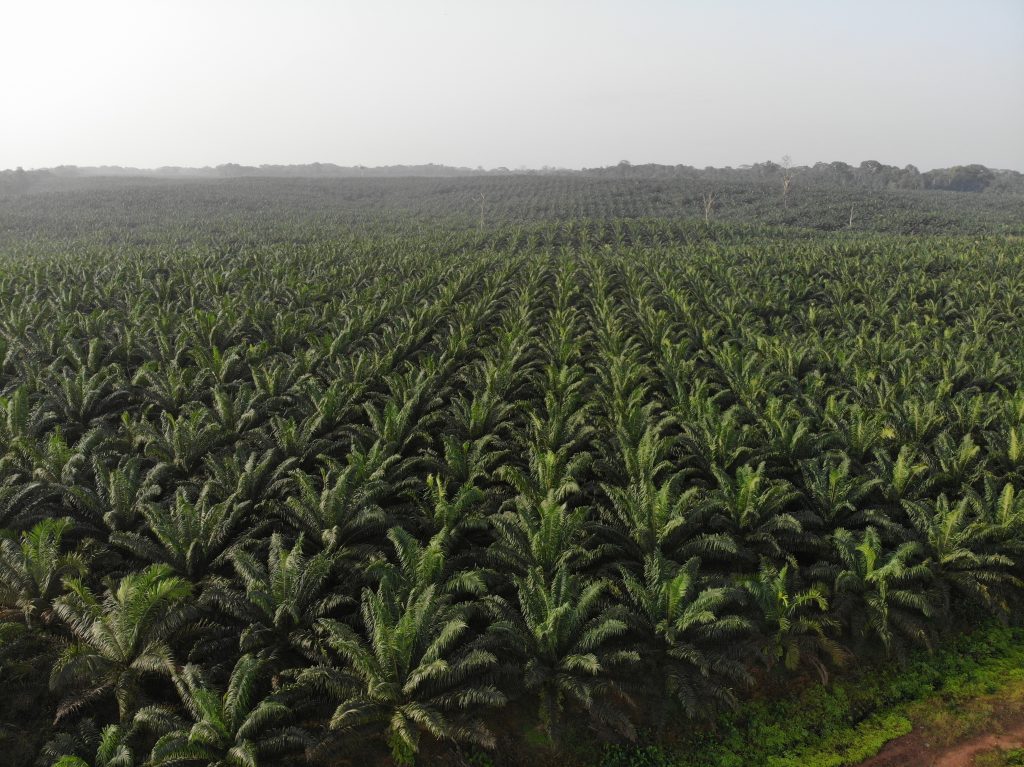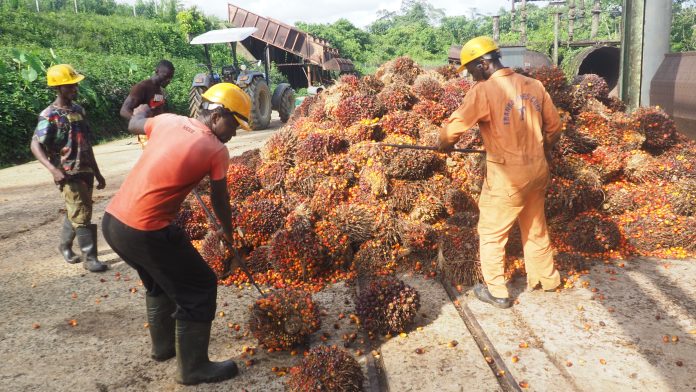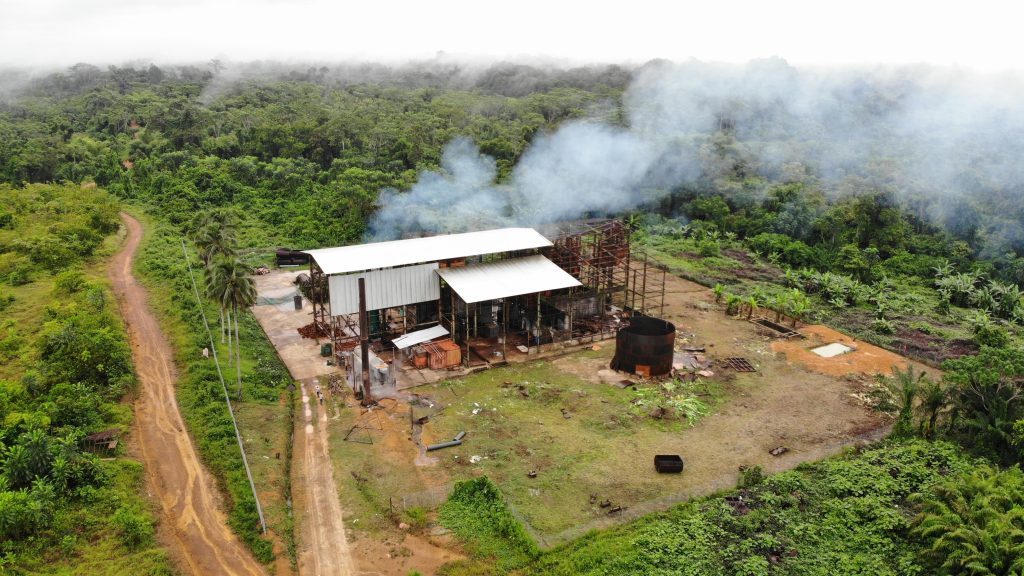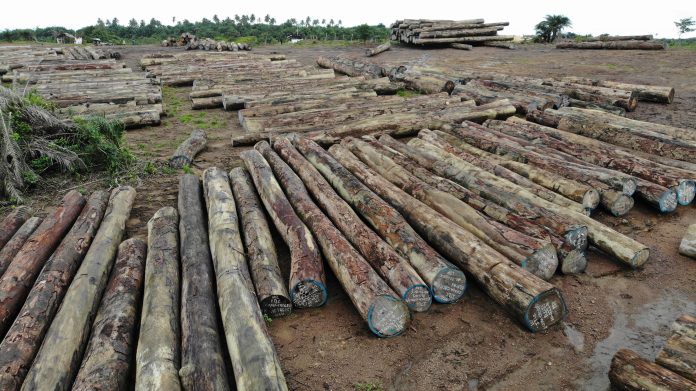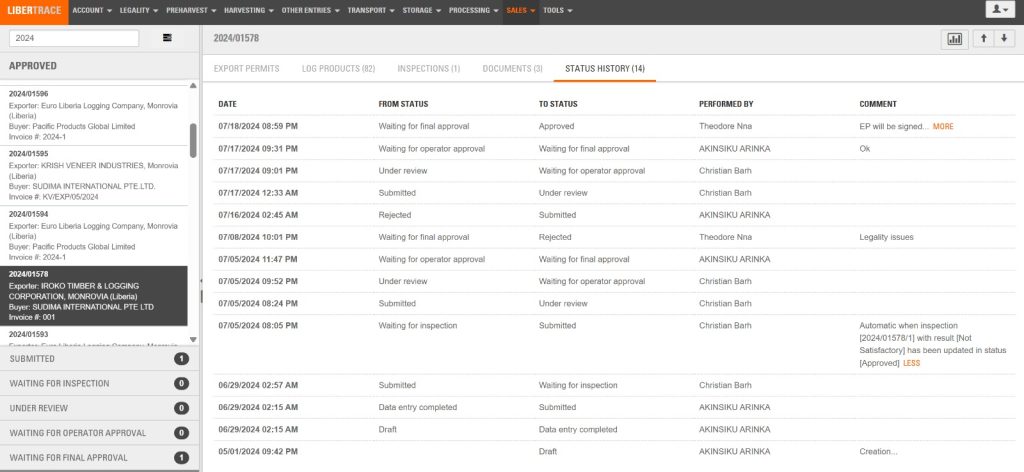By Saah A. David, Jr.
Introduction
Sapo National Park (SNP) is one of Liberia’s greatest natural treasures. Globally, it is recognized as both an Important Bird Area and a Key Biodiversity Area, underscoring its irreplaceable value for avian conservation and biodiversity. Regionally, SNP contains the second-largest area of intact tropical rainforest in West Africa, after Cote d’Ivoire’s Tai National Park, and stands as Liberia’s first and largest protected area.
The park provides critical habitat for the pygmy hippopotamus–found only in the Mano River Union countries–with Liberia hosting the largest population. It also shelters the largest population of western chimpanzees in Liberia, making the country second only to Guinea in West Africa for this endangered species. Moreover, SNP holds Liberia’s most significant population of African forest elephants, a species now severely threatened across the region.
Concerns with the De-Gazettement Proposal
Hon. Thomas Romeo Quioh’s proposal to partially or fully de-gazette Sapo National Park (SNP) raises serious concerns. While socio-economic development and community welfare are essential, any alteration of SNP’s legal status must be consistent with Liberia’s constitutional mandate, national legislation, and international commitments to environmental protection and sustainable development. De-gazettement would violate these obligations, undermine conservation gains, and risk irreversible ecological damage.
This initial response highlights key legal frameworks that support the preservation of SNP, emphasizing the importance of upholding Liberia’s environmental obligations and the long-term ecological and socio-economic consequences of de-gazettement. A subsequent response – scheduled for release in the coming days – will examine the economic benefits Liberia can gain (monetary and non-monetary benefits) from ecotourism, carbon sequestration, and other sustainable practices associated with the park and other protected areas in the country.
1. International Legal Frameworks Upholding Conservation of Sapo National Park
- Convention on Biological Diversity (CBD, 1992): Liberia has committed to conserving biological diversity (Articles 6 and 8) and to meet the 30X30 target under the 2022 Kunming-Montreal Global Biodiversity Framework, which requires protecting at least 30% of the world’s land and sea areas to be under effective protection and sustainable management by 2030. De-gazettement would directly undermine this goal.
- Ramsar Convention on Wetlands (1971) and UNESCO’s Man and Biosphere Programme: SNP’s wetlands provide vital ecosystem services such as water regulation, carbon storage, and climate resilience. Downsizing or de-gazetting the park would diminish these services and harm local livelihoods.
- UN Framework Convention on Climate Change (UNFCCC) & REDD+ Initiatives: Liberia commits to forest protection to mitigate climate change through reducing deforestation. De-gazettement of SNP would lead to deforestation, forest degradation, carbon emissions, and loss of international climate financing opportunities
2. National Legal Protection and Policy Frameworks
- Constitution of Liberia (Article 7): Mandates sustainable use and conservation of natural resources for present and future generations.
- Liberia Forestry Reform Law (2006): Mandates the protection of forest reserves and national parks for sustainable development and environmental preservation. It provides mechanisms for review but strongly emphasizes conservation and does not facilitate facile removal of protected status without stringent assessments and multi-stakeholder consultation.
- Environmental Protection Agency (EPA) Act of 2003: Demands comprehensive Environmental and Social Impact Assessments (ESIA) before any action that could harm protected ecosystems. No such ESIA has been conducted for SNP’s de-gazettement
- Land Rights Act (2018): While affirming customary land ownership, this law requires coordination with environmental protection efforts. The presence of communities within the park’s boundaries necessitates integrated land-use planning without compromising ecological integrity, not wholesale de-gazettement.
- National Biodiversity Strategy and Action Plan (NBSAP 2017): Commits Liberia to expanding, not reducing, its network of protected areas.
3. Conservation and Sustainable Development Interdependence
- Sustainable Development Goals (SDGs): Particularly SDG 15 (Life on Land): Obligates countries to sustainably manage forests and halt biodiversity loss. De-gazettement of SNP would contravene this goal and risk isolating Liberia from international development partnerships.
- Long-Term Socio-Economic Impacts: While some short-term economic gains may arise from legalizing mining and logging, these are outweighed by biodiversity loss, disruption of ecosystem services (such as water regulation and soil conservation), and increasing vulnerability of local communities to environmental degradation.
4. Addressing Enforcement and Governance Challenges without De-Gazettement
The proposal rightly identifies enforcement and governance as challenges, yet de-gazettement is not the sole or best solution. Alternatives supported by conservation laws include:
- Strengthening the institutional capacity of the Forestry Development Authority, EPA, and law enforcement with adequate financing, training, and community empowerment.
- Enhancing community-based natural resource management, offering genuine benefit-sharing schemes under existing legal frameworks to incentivize conservation.
- Creating the enabling environment and infrastructure for sustainable ecotourism as part of diversified local economies, consistent with national forest and wildlife policies.
5. Risks of Creating a Precedent for Protected Area Downgrading
Partial or full de-gazettement would set a dangerous precedent, inviting similar moves across other protected areas and emboldening illegal encroachment, contrary to the global principle of “no net loss” of biodiversity or natural ecosystems.
6. Conclusion
Sapo National Park is not only a symbol of Liberia’s heritage but also a cornerstone of its environmental obligations and sustainable development ambitions. De-gazettement would cause lasting ecological, social, and economic harm, eroding Liberia’s credibility in global environmental governance. The responsible path forward is to improve governance, strengthen enforcement, empower communities, and pursue sustainable economic models that keep SNP intact for future generations.
Author: Saah A. David, Jr. – Development Practitioner, REDD+ and Climate Change Specialist. Former Natural Resource Management Specialist – USAID-Liberia, former National REDD+ Coordinator Liberia. Co-authored two books – Sustainable Forest Management (SFM in Liberia – The 4 Cs Approach and Sustainable Forest Management in Liberia (SFM) – Practices and Approaches

